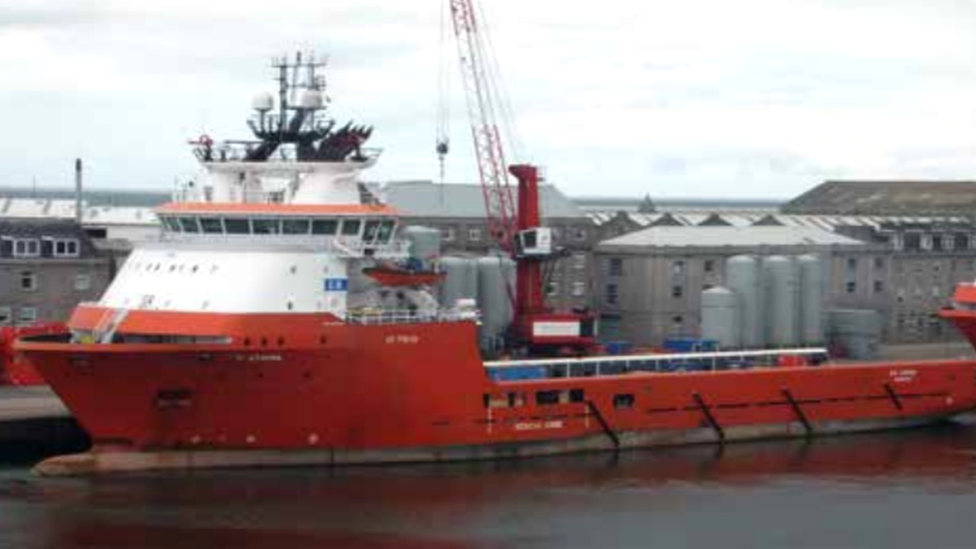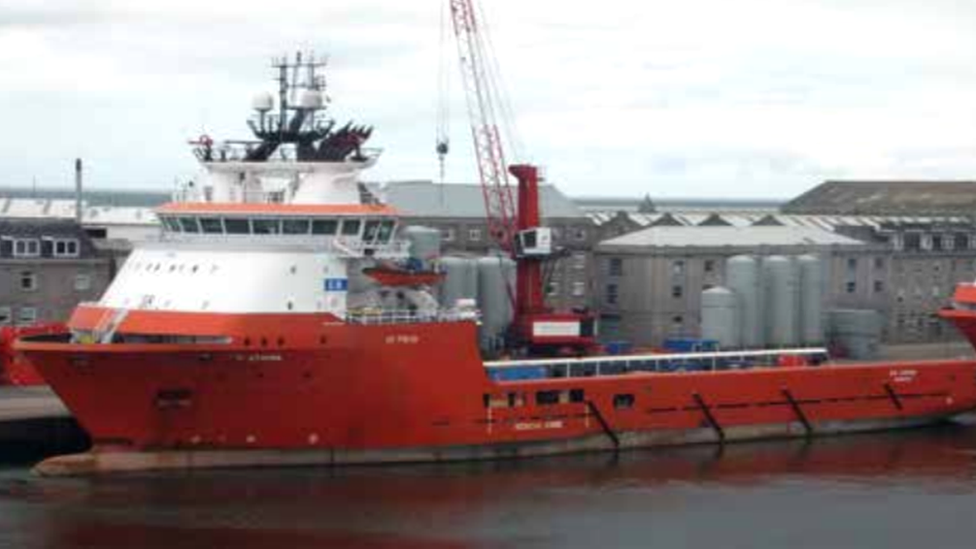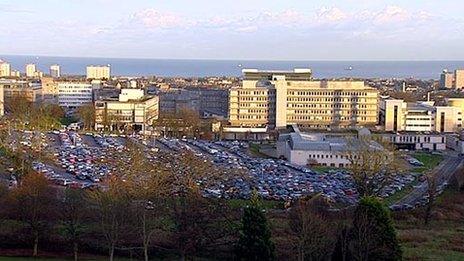Coastguards not alerted when offshore vessel crewman crushed
- Published

The fatal accident happened on the ER Athina in 2012
Coastguards were not alerted when a crew member on an offshore vessel was crushed while painting the hull, a fatal accident inquiry has heard.
Pjero Kurida, 29, died in hospital after being injured while the ER Athina was off Aberdeen on 10 June 2012.
He had been in a fast rescue craft for painting repairs to the supply vessel.
The captain told the FAI he heard screaming. He contacted the shipping agent and a fishing boat was sent to take Mr Kurida ashore.
No formal risk assessment had been done before the painting operation at sea.
Master mariner Artur Wnukowski had taken over command of the platform supply vessel on 6 June 2012.
Giving evidence remotely from Poland, he told the first day of the inquiry that ER Athina's hull had been damaged the next day when the vessel came into contact with the quayside in Aberdeen.
He agreed with David Glancy, for the Crown, that it was an "unfortunate start" to his captaincy.
The damage needed repainted, to prevent corrosion, but Mr Wnukowski said there was not enough time to do it before leaving harbour.
Asked if it may have been safer to do at harbour than at sea, he replied: "Absolutely". He agreed that ships could be "dangerous places".
The vessel sailed on 9 June to anchor about two miles off Aberdeen.
In pain
Mr Wnukowski said he discussed the repairs with Mr Kurida, the vessel's Croatian bosun, and proposed lowering a bench-system down.
Of using the fast rescue craft (FRC) as a painting platform instead, Mr Wnukowski told the inquiry: "He said it would be easier and faster because it was a five-minute job".
The witnesses said the weather was good and Mr Kurida was happy with the plan, to use an extension pole and roller from the FRC.
He said the bosun assured him he had no doubt it was safe to do the task, although there was no formal written risk assessment.
Mr Wnukowski said he was on the bridge when the FRC - with two people on board - was launched, and he then came out on the main deck.
He said he heard screaming, and the operation was aborted, with the FRC being returned on board.
He said he could see the bosun was in pain but conscious, and Mr Kurida suspected he might have broken ribs.
'Lesson learned'
Mr Wnukowski contacted the shipping agents in Aberdeen to arrange transport ashore for hospital treatment, rather than contacting Coastguards, due to his own view of the injuries.
About 55 minutes after the accident, Mr Kurida - who asked for belongings in case he was in hospital for some time - was transferred on to a fishing boat, Skua, to be taken ashore.
The inquiry heard Mr Wnukowski's reaction to being told later that day by Coastguards that Mr Kurida had died in hospital as his injuries were too severe was: "Oh my God".
Mr Glancy asked: "Do you accept you did not contact the Coastguard?"
"Now I would do it a different way", he said.
He said the fact Mr Kurida died had changed the way a master such as himself would react. He said it was a "lesson learned".
He accepted he may have been transferred faster if Coastguards had been alerted, and that he had ultimate responsibility on the vessel.
The inquiry heard that the risk assessment for launching fast rescue craft was amended within days of the accident to prohibit use for anything other than rescue operations and drills.
The inquiry, before Sheriff Ian Wallace, continues on Thursday.
Related topics
- Published3 March 2021

- Published27 January 2021

- Published11 June 2012
